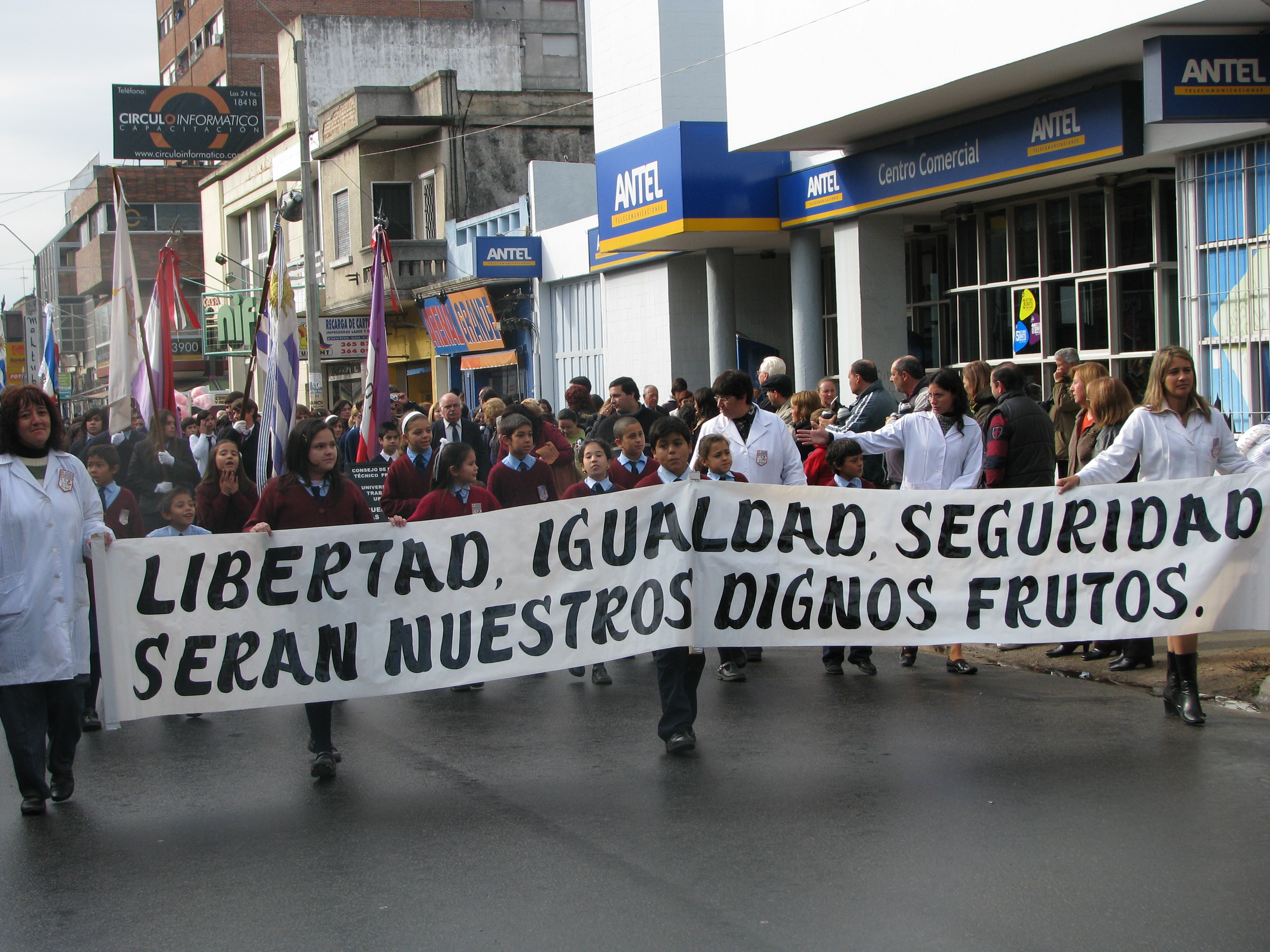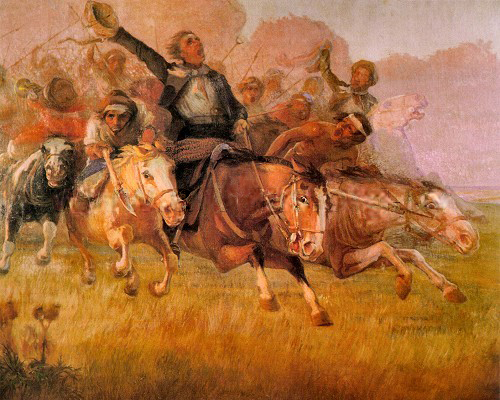|
Artiguism
Artiguism is the set of political ideas, economic and social, of José Gervasio Artigas, the main leader of the Oriental Revolution held in the Oriental Province of the United Provinces of the Río de la Plata, which was a predecessor of the modern Republic of Uruguay. Sources of Inspiration Artiguism has two main sources: the works of American authors such as Thomas Paine (supporters of federalism) and the French authors of the Enlightenment as Jean-Jacques Rousseau. Artigas read books in his teens as "''Common Sense''" by Paine and "''The Social Contract''" by Rousseau. As such, the first "Caudillo" or Founding Father of the La Plata territory seems to have been inspired more by the English enlightenment than the French. The ideology of Artigas is partially taken from the U.S. legal texts. American political liberalism exerted strong influence him. Other Hispanic independence leaders, however, were more influenced by the French Revolution and the authors of France. Some histori ... [...More Info...] [...Related Items...] OR: [Wikipedia] [Google] [Baidu] |
José Gervasio Artigas
José Gervasio Artigas Arnal (; June 19, 1764 – September 23, 1850) was a political leader, military general, statesman and national hero of Uruguay and the broader Río de la Plata region. He fought in the Latin American wars of independence against the Spanish Empire, but also against the Portuguese Empire and the centralist government of Buenos Aires in the pursuit of political and civil liberties for the peoples of the Viceroyalty of the Río de la Plata. He is considered a ''Libertador'' of Latin America and a national hero in Uruguay, sometimes referred to as "the father of Uruguayan nationhood". His biggest political project was the creation of the Federal League, a confederation of South American provinces under a federal style of government inspired by the United States. Biography Early life Artigas was born in Montevideo on June 19, 1764. His grandparents were from Zaragoza, Buenos Aires and Tenerife (Canary Islands). His grandparents fought in the War ... [...More Info...] [...Related Items...] OR: [Wikipedia] [Google] [Baidu] |
History Of Uruguay
The history of Uruguay comprises different periods: the pre-Columbian time or early history (up to the 16th century), the Colonial Period (1516–1811), the Period of Nation-Building (1811–1830), and the history of Uruguay as an independent country (1830). Native The earliest traces of human presence are about 10,000 years old and belong to the hunter-gatherer cultures of Catalanense and Cuareim cultures, which are extensions of cultures originating in Brazil. The earliest discovered bolas is about 7,000 years old. Examples of ancient rock art have been found at Chamangá. About 4,000 years ago, Charrúa and Guarani people arrived here. During precolonial times, Uruguayan territory was inhabited by small tribes of nomadic Charrúa, Chaná, Arachán, and Guarani peoples who survived by hunting and fishing and probably never reached more than 10,000 to 20,000 people. It is estimated that there were about 9,000 Charrúa and 6,000 Chaná and Guaraní at the time of first cont ... [...More Info...] [...Related Items...] OR: [Wikipedia] [Google] [Baidu] |
Instructions Of The Year XIII
The Instructions of the Year XIII ( es, Instrucciones del año XIII) were the mandate brought by the representatives from the Oriental Province to the Assembly of the Year XIII of the United Provinces of the River Plate. In 1813, a meeting called by the Second Triumvirate was meant to define the type of government for the new nation. The people of the Oriental Province (what is now Uruguay) drafted a federalist document, opposed to the centralism of the Second Triumvirate. Among other ideas, the following principles were proclaimed: * independence, * republic, * federalism, * full civic and religious freedom, * the capital should not be Buenos Aires. These Instructions were the origin of an unending conflict between the Oriental leader, José Gervasio Artigas, and the authorities that be in Buenos Aires. Some scholars see the influence of American founding father Thomas Paine in these Instructions.John Street, ''Artigas and the Emancipation of Uruguay'' (London: Cambridge Un ... [...More Info...] [...Related Items...] OR: [Wikipedia] [Google] [Baidu] |


